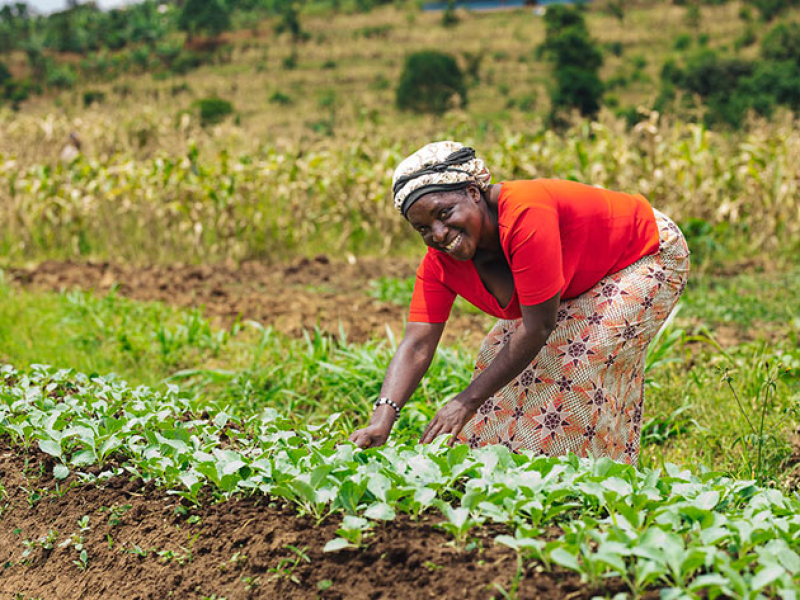- EU Deploys 56 Long-Term Observers Across Bangladesh |
- Appeals over nomination papers:18 more regain candidacies back |
- More than 100 dead in torrential rains and floods across southern Africa |
- Islami Andolan to Contest Election Alone in 13th Poll |
- 3 killed in Uttara building fire; 13 rescued |
Seeds Hold the Key to Climate Action and Resilient Food

Marceline, a farmer from the Gwiza Cooperative in Rwamagana district, Rwanda, shows her beds of newly planted cabbage.
When you think of climate action, images of wind farms, solar panels, bicycles, or electric vehicles may come to mind. Perhaps lush forests or green landscapes. What you may not think of is the humble seed.
Yet seeds are among our most powerful tools to cut emissions, adapt to rising temperatures, and reduce food waste. They underpin reforestation efforts and have the power to unlock climate-resilient, lower-emission, longer-lasting crops.
If the world is to meet its climate goals while feeding a growing population in a hotter, less predictable world, it must unleash the full potential of the seed industry. This means supporting innovation, investment, and strong collaboration between the public and private sectors.
Strong engagement at Climate Week NYC helped set the stage for discussions leading to COP30 in November, emphasizing the need to fully harness seeds’ potential for a climate-resilient future.
Global temperatures continue to rise, driving more frequent extreme weather events and straining ecosystems. Food security, health, migration, and economic stability are all impacted, especially in the poorest nations, which have contributed least to the problem.
Agriculture is often hit hardest, as crops depend on stable weather. Droughts, floods, and heatwaves devastate harvests, while warmer, more humid temperatures fuel germs, spoilage, and food loss. Already, one-fifth of all food produced globally is lost or wasted before consumption.
One of the most powerful tools to adapt, cut emissions, and reduce hunger remains underutilized: improved seeds. Examples of their potential impact exist worldwide, ready to scale.
In Brazil, orchards of native trees such as the Araucaria are meticulously managed through nurseries and planted in restoration sites, ensuring climate-resilient reforestation. In Mexico, climate-adapted hybrid maize varieties have transformed agriculture, improving food security and economic stability. In Rwanda, sustainable seed systems are being built from the ground up, with newly tested varieties yielding up to nine times more than traditional seeds.
Scientific advancements continue to push boundaries. Researchers are developing new staple crop varieties, such as tomatoes, using CRISPR technology to extend shelf life and reduce food waste.
To maximize seeds’ potential, they must move from the margins to the mainstream of climate action. Mainstreaming seeds in climate finance would accelerate the development of climate-resilient, low-emission varieties. Integrating seed innovation into national strategies and Nationally Determined Contributions ensures seeds are seen as critical infrastructure.
Public-private partnerships, like ISF’s collaboration with CGIAR, can drive innovation at scale, translating research into practical solutions for farmers worldwide.
In 2025—following the hottest year ever recorded—we cannot overlook one of our most effective climate tools: seeds. They hold immense potential to help us adapt to rising temperatures, cut emissions, improve carbon sequestration, and reduce agricultural waste.
Policymakers and stakeholders must plant the seed of a climate-resilient future now, before it is too late to reverse the devastating impacts of a warming world.

